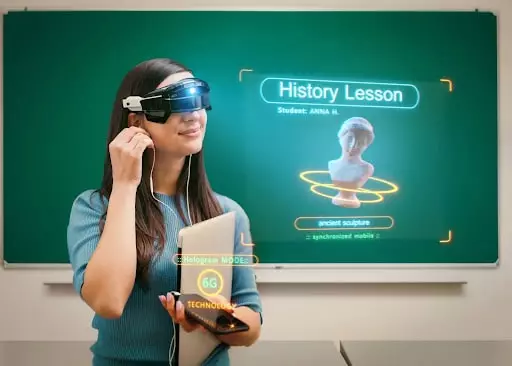The education industry, like many others, has been exposed during the Covid-19 pandemic, revealing its inherent flaws and limitations. The reliance on centralized authorities and physical institutions has hindered access to education and hampered the decision-making process. It is evident that the current education system, which has remained largely unchanged since the 1800s, needs a radical transformation to meet the demands of the modern world.
Breaking Barriers
Decentralized education, often referred to as DeEd, offers a solution to the limitations of traditional education. By leveraging decentralized technologies, DeEd provides learners, teachers, and institutions with distributed access to educational resources, regardless of their physical location. The removal of geographical barriers allows anyone with an internet connection to access quality education.
One of the key advantages of DeEd is its ability to customize and personalize the learning process. Unlike the traditional one-size-fits-all approach, DeEd allows learners to choose subjects, modules, and techniques that align with their unique needs and interests. The use of modern technologies enables the creation of interactive, gamified, and peer-to-peer learning experiences, revolutionizing the way knowledge is acquired and retained.
Technological Advancements
The rise of blockchain technology and artificial intelligence has paved the way for the development of DeEd. These technologies enable the secure and transparent construction and delivery of educational programs. Moreover, the rapidly evolving job market, characterized by frequent career changes, demands a more adaptable and personalized approach to learning. Social media and internet interactivity further enhance the accessibility and effectiveness of DeEd.
Several notable projects are spearheading the decentralized education movement. TinyTap, an edtech project, offers a vast library of educational games in multiple languages. Recently, they ventured into the Web3 space with “Publisher NFTs,” which grant educators ongoing passive income for their courses. Hooked Protocol combines gamification and cryptocurrency rewards to create an engaging social learning platform. Open Campus, a community-driven Web3 protocol, enables teachers to monetize their educational materials through tokenization. They have also partnered with TinyTap to publish learning resources.
Challenges and Opportunities
While the future of DeEd holds great promise, there are challenges that need to be addressed. Bridging the digital divide and ensuring equal access to technology is crucial. Maintaining the quality and consistency of education in a decentralized landscape is also a concern. Additionally, helping individuals adapt to unfamiliar technological platforms is essential for widespread adoption.
The transformative potential of decentralized learning cannot be overlooked. By embracing DeEd, institutions and individuals can create a future where education is accessible, equitable, and inclusive. Its ability to break down barriers, personalize learning, and leverage emerging technologies makes it an essential framework for the education sector.
The education industry is in need of a significant overhaul. The limitations of the current system have been exposed, highlighting the importance of embracing decentralized learning. Through DeEd, the barriers of time, location, and one-size-fits-all approaches can be dismantled. The adoption of modern technologies and the recognition of individual needs are keys to creating an educational landscape that benefits all. It is time to embrace the future of education and ensure a fruitful and empowering journey for both teachers and learners alike.









